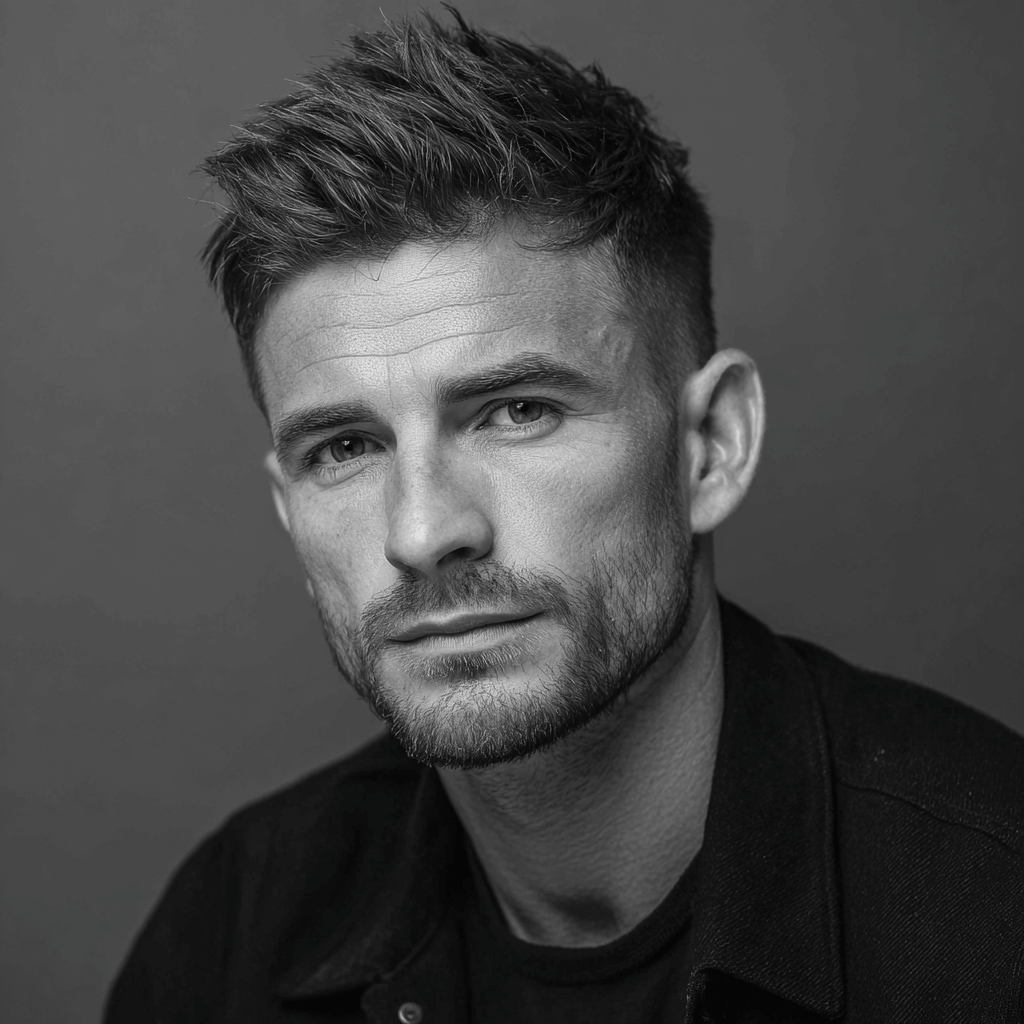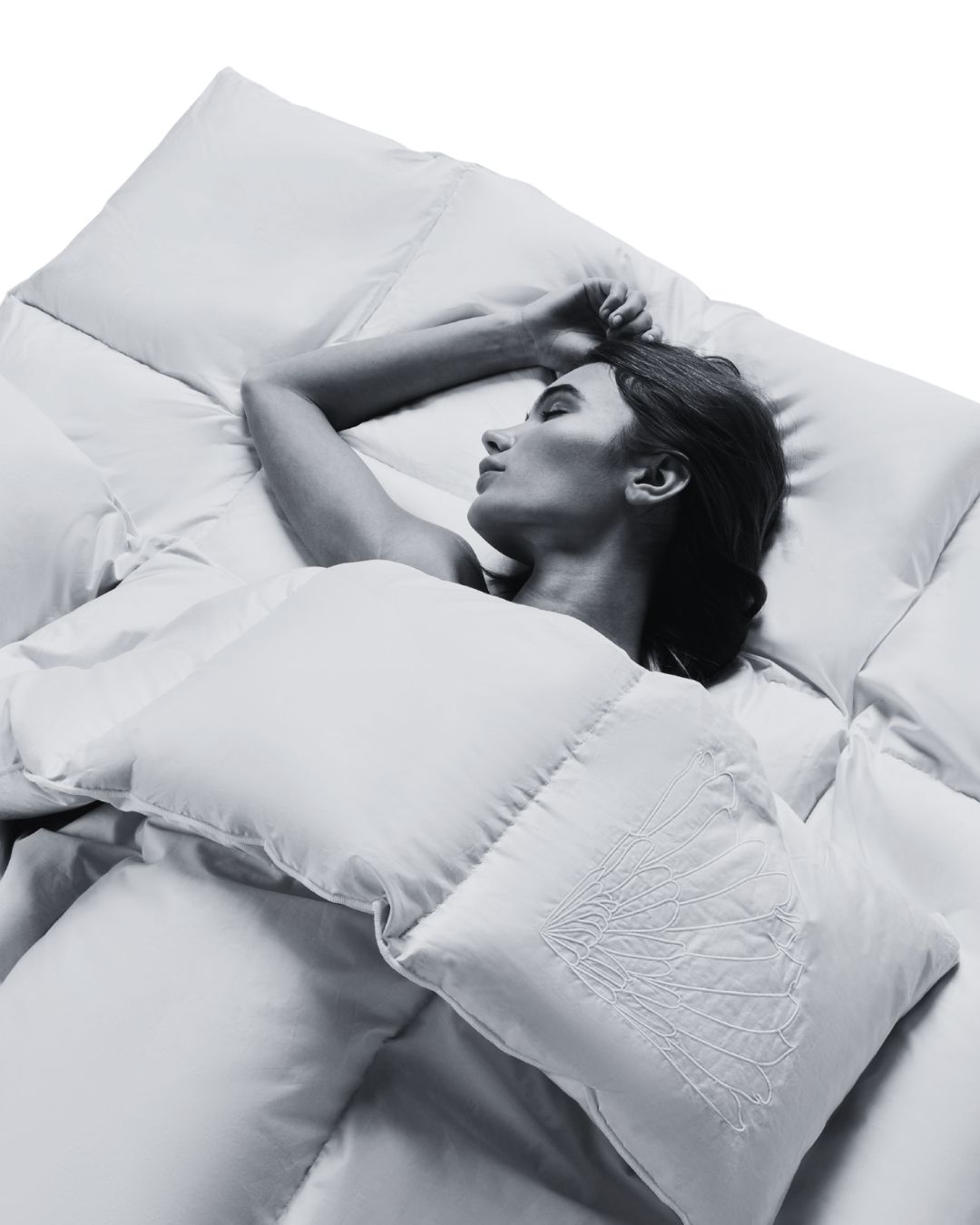How Better Sleep In The Sky Is Worth More Than Money
A Sybajet x UMŌ Paris journal entry
You feel the tempo of the day drop the moment the cabin door closes. Dubai is behind you now. London is ahead. Your meeting starts only hours after landing, and you know the truth every frequent flyer accepts quietly: how you sleep tonight will shape the person who walks into that room.
The crew already understand. They speak softly, move lightly, and begin preparing the bed you asked for. UMŌ Paris bedding is unwrapped with the kind of care usually reserved for art. Hand sewn in a B Corp atelier in Chablis, their eiderdown duvets are warm without heaviness and impossibly soft. You ease beneath one as the aircraft lifts, and something rare happens. Your body agrees to let go.
Researchers at RAND Europe estimate that insufficient sleep costs the UK around £40 billion a year in lost productivity. It is a number that resurfaces across studies, but its weight becomes clearer when you travel for work: one poor night on a long-haul trip can dull judgement, shorten patience and heighten stress at precisely the moments you need clarity. The data is blunt. Chronic short sleep raises the risk of heart disease, diabetes and depression. Even a single disrupted night can impair decision making to a degree comparable with alcohol. You feel all of this most acutely at 40,000 feet.

This is why a night like this matters. In the quiet of the cabin, wrapped in UMŌ Paris bedding sourced ethically from Icelandic sanctuaries, you fall into a sleep that feels closer to recovery than escape. UMŌ’s eiderdown is collected by hand after the birds leave their nests, a practice that has supported small Icelandic communities for generations. Their atelier, over a century old, is one of the few in France with B Corp certification. Nothing about their process is rushed.
Sybajet operates the same way in the air. Every detail of the cabin environment is shaped around your route, your time zone and the way your body adjusts to both. The lighting nudges you toward London time. The temperature is set a degree cooler to support deeper rest. The crew know not to disturb you. These are small decisions that, taken together, give you back the most valuable thing a flight can offer: real rest.
You wake to soft light before descent. For a moment you forget you are airborne. You stretch, breathe, and recognise something you rarely feel after an overnight flight: calm. It lands before you do.
None of this exists in a vacuum. Private aviation carries a higher carbon footprint per traveller than commercial flying, and recent analyses place global private jet emissions in the tens of millions of tonnes each year. That reality deserves honesty. What Sybajet and UMŌ Paris offer is not a cure, but a more intentional approach to the things they can control. Natural, biodegradable materials. Ethical sourcing. B Corp-certified production. Smarter routing and fuel choices. A commitment to refinement rather than excess. Responsibility, handled with the same attention as comfort.
But this night, this bed, this experience is about something closer and more immediate. You step off the aircraft as someone who has slept, not someone who has endured a journey. You walk into your meeting grounded, steady and present. You make better choices because your mind is rested, not wired.
When travel becomes this considered, sleep stops being a luxury. It becomes a form of strength. And in the world you move through, that is worth far more than the price of a flight.
Refrences:
- “Lack of Sleep Costing UK Economy Up to £40 Billion a Year” — RAND Europe press release, Nov 2016. https://www.rand.org/news/press/2016/11/30/index1.html
- “Why sleep matters — the economic costs of insufficient sleep: A cross-country comparative analysis” — RAND Europe report. https://www.rand.org/pubs/research_reports/RR1791.html
- The UK Employee Assistance Professionals Association article “The cost of poor sleep”. https://www.eapa.org.uk/the-cost-of-poor-sleep/
- “Private aviation is making a growing contribution to climate …” — Nature journal, Nov 2024. https://www.nature.com/articles/s43247-024-01775-z
- The ICCT (International Council on Clean Transportation) report: “Air and greenhouse gas pollution from private jets, 2023”. https://theicct.org/wp-content/uploads/2025/06/ID-349-%E2%80%93-Private-jets_report_final.pdf
- AP News: “Carbon pollution from high-flying rich in private jets soars” (Nov 2024). https://www.apnews.com/article/0a2d1d2cd81906381953346bfdb879e8
- Jesus College Cambridge article: “The economic costs of insufficient sleep”. https://www.jesus.cam.ac.uk/articles/economic-costs-insufficient-sleep
Stay Updated with Sybajet
Subscribe to our newsletter for the latest industry insights and company updates from Sybajet.
.webp)



